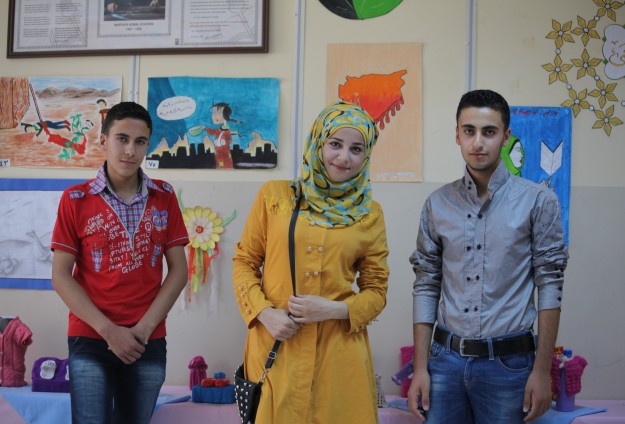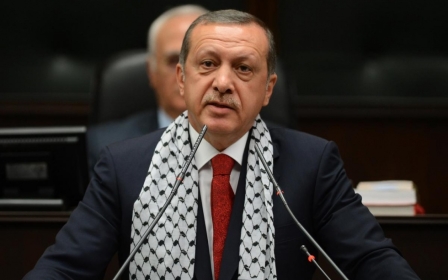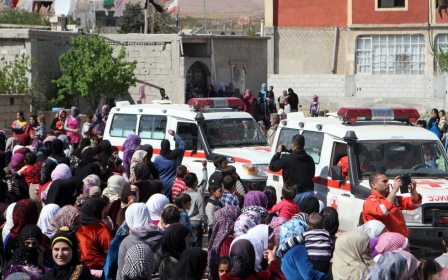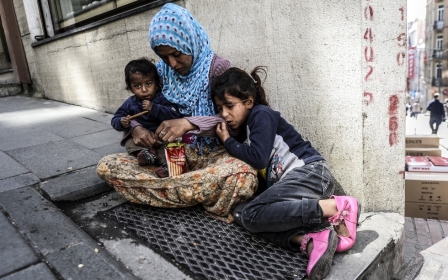Turkey eases Syrian refugees' entry into formal economy

GAZIANTEP, Turkey – Gaziantep, a south-eastern city that is hosting one of the largest Syrian refugee populations in Turkey, is taking measures to facilitate the refugees' entry into the formal economy, the mayor of the city said.
The city, which is accommodating more than 200,000 refugees, has prepared a program to draw Syrians living outside the refugee camps into the formal labour market, Mayor Fatma Sahin said.
The first Syrian refugees began to cross into Turkey in April 2011. As of June 2014, there were 700,000 refugees in the country, 70 percent of whom live outside the refugee camps, according to the 2014 Syria Regional Response Plan of the UN. The total number is expected to be as high as 1 million by the end of the year, the response plan said.
The camps provide for the basic needs of the refugees and provide and essential services. However, once they are out of the camps, the refugees need to pay for their own accommodation and food. And they can cover these basic costs only if they have some savings -- or a job.
A 24-year old female refugee, who did not want to divulge her name, compared camp life with life outside.
“It is easier to live in the camps,” she said. “They provide you with everything in the camps. In the city, however, I need to finance my own expenses. I pay rent, I buy my own food. But still I prefer to live in the city, since it feels like I am in control of my own life here, as if I shape my own destiny.”
The refugee said she was working as a hairdresser in Aleppo before the war and came to Turkey two years ago. She is now working as a shop assistant in Gaziantep, in a Syrian-run business.
Asked if it was easy for a Syrian refugee to find a job, she said, “Only if you can speak Turkish. I am lucky to speak three languages, Arabic, Turkish, and Kurdish.”
Until now, obtaining a work permit for Syrian refugees has been a slow and complicated process, with refugees needing a valid passport and a residence permit and employers needing to show that there are no Turkish nationals available for the position, according to a Brookings Institute survey titled "Syrian Refugees and Turkey’s Challenges."
'We do not want to sit idle'
But in April, the Turkish Ministry of Labour and Security introduced an expedited procedure for Syrians to obtain work permits. To implement the law, the city of Gaziantep prepared a feasibility plan based on experts’ reports and presented it to the Parliament for approval, Sahin said. The plan regulates the refugees' working lives, Sahin said.
“The plan will prioritize Turkish citizens’ employment, but still a certain number of the refugees employed in the unrecorded economy will integrate into the system,” she said.
“For example, a fifth organized industrial zone is now being constructed in Gaziantep." she said. "After giving priority to Turkish citizens in terms of employment, the companies in this zone will then hire Syrian refugees.”
That suits the refugees, as well.
“We do not want to sit idle,” Najmaddin Ali, a 40-year old refugee, said.
Another refugee, a jewelry-store owner named Ali, said, “I used to own four stores in Aleppo before the war, but now I barely meet this store’s ends.”
Despite the war, life goes on, according to Ali, and he finds some comfort in the daily routine of working.
“Syrians brought dynamism to trade here in Gaziantep,” he said.
“If Prime Minister Erdogan had not opened the borders to us, we would have been dead by now,” Ali said.
Ali said appreciates the Turkish hospitality but wants to be given more opportunities.
The war in Syria might persist for another 10-15 years, according to many experts. But Ali hopes they are wrong.
“Syria is my motherland," he said. "It was a heaven back there before the war. I hope the war will end soon.”
New MEE newsletter: Jerusalem Dispatch
Sign up to get the latest insights and analysis on Israel-Palestine, alongside Turkey Unpacked and other MEE newsletters
Middle East Eye delivers independent and unrivalled coverage and analysis of the Middle East, North Africa and beyond. To learn more about republishing this content and the associated fees, please fill out this form. More about MEE can be found here.




